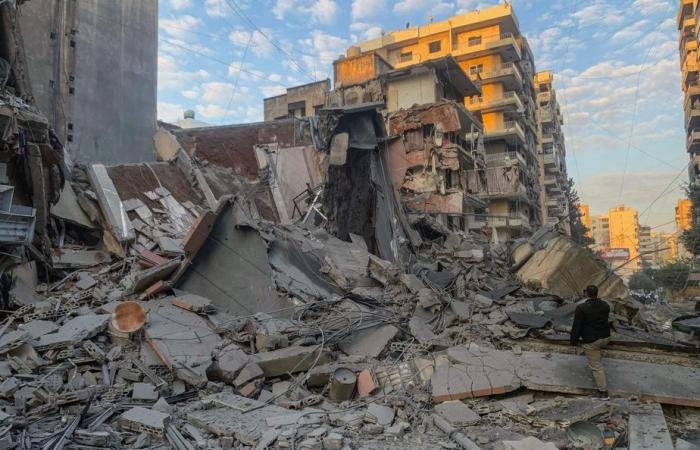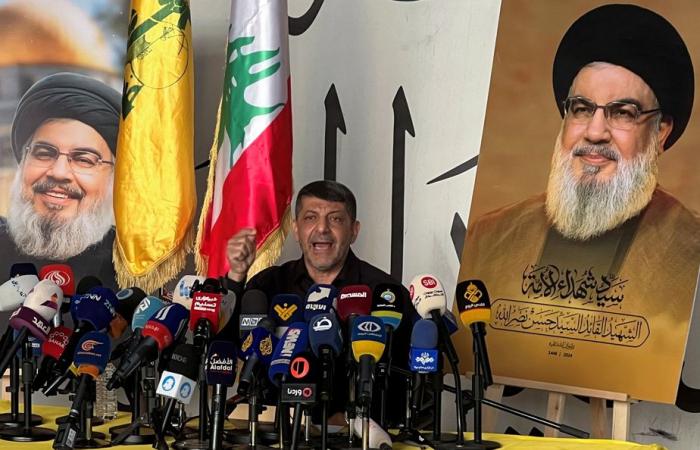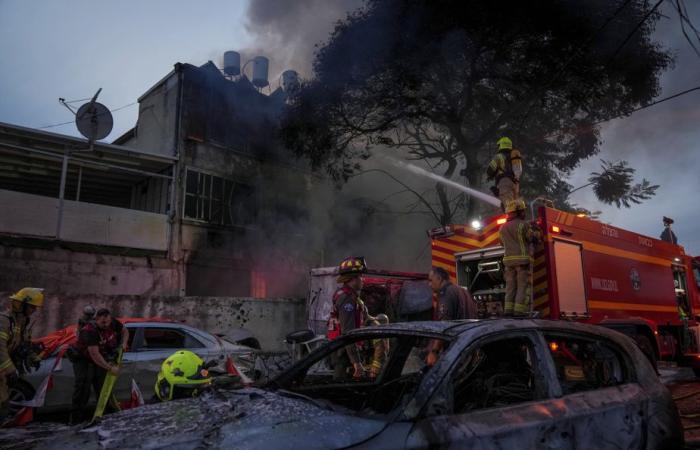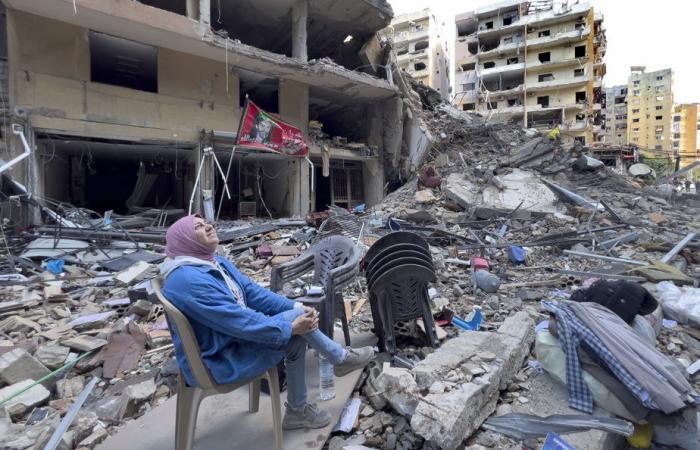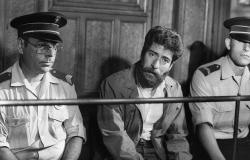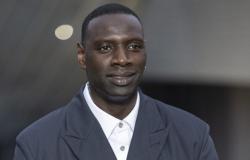(Beirut) Hezbollah media chief Mohammad Afif said Monday that the Israeli army still did not occupy any village in southern Lebanon where it launched a ground offensive on September 30.
Posted at 6:35 a.m.
Updated at 10:09 a.m.
“After 45 days of bloody battles, the Israeli enemy is still incapable of occupying a single village” in southern Lebanon, assured the official during a press conference in the southern suburbs of Beirut, shelled by the air force. Israeli.
He assured that Hezbollah fighters were able to push back the Israeli army in Khiam, about six kilometers from the border, and that it had unsuccessfully “attempted to penetrate on several fronts into Bint Jbeil”, another border town.
PHOTO HAIDER KADHIM, REUTERS
Hezbollah media chief Mohammad Afif during a press conference in the southern suburbs of Beirut on Monday.
Since September 30, the Israeli army has been carrying out incursions into Lebanese territory and dynamiting buildings in border villages, without settling there. Hezbollah accused it of wanting to create a “no man’s land” on the border.
Mohammad Afif denied Israel’s “allegations” that Hezbollah’s missile stockpile had declined due to its daily strikes on Lebanon.
“How can our stock of missiles decrease when we targeted the suburbs of Tel Aviv a few days ago […] and used Fateh missiles for the first time? “, he asked.
Hezbollah, which launches missiles, rockets and drones into Israeli territory, announced on November 6 that it had started using Iranian-made Fateh 110 surface-to-surface ballistic missiles, with a range of 300 kilometers according to experts.
The pro-Iranian formation announced on Monday that it had targeted several objectives in northern Israel, including a military base north of Safed and the Krayot area near the large city of Haifa.
For its part, the Israeli air force targeted several localities in southern Lebanon on Monday, after a new call to evacuate several localities, according to the National Information Agency (ANI, official).
At least seven people, “mostly women and children,” were killed Monday evening in an Israeli strike on the town of Saksakieh, in southern Lebanon, the Health Ministry said.

PHOTO FRANCISCO SECO, ASSOCIATED PRESS
Firefighters attempt to put out a fire after a rocket fired from Lebanon hit Kiryat Ata in northern Israel on November 11, 2024.
According to the official Lebanese news agency ANI, the strike “targeted a house” in this coastal town relatively far from the border with Israel, and rescuers are searching the rubble in search of missing people.
Israel has been at open war with pro-Iranian Hezbollah since September 23 and killed its iconic leader, Hassan Nasrallah, in an Israeli strike on the southern suburbs of Beirut on September 27.
At least 3,243 people have been killed in Lebanon in more than a year of conflict, the majority civilians, according to the Lebanese Ministry of Health.
Mohammad Afif again said that his formation was “ready for a long war”.
Israeli Foreign Minister Gideon Saar reported on Monday “some progress” towards a ceasefire in Lebanon.
Asked about the prospects for a ceasefire, the Hezbollah official replied that since the election of Donald Trump to the American presidency, there have been “contacts between Washington, Moscow, Tehran and other capitals”.
“But according to my information, nothing official has reached Hezbollah or the Lebanese state,” he added.
Lebanon asks for international aid
Lebanese Prime Minister Najib Mikati said Monday that an “unprecedented” crisis threatened the existence of his country, where the Israeli army launched a major military offensive against the Islamist movement Hezbollah in mid-September.

PHOTO HUSSEIN MALLA, ASSOCIATED PRESS
A woman sits on rubble looking at a building destroyed by an Israeli airstrike in Dahiyeh, a southern suburb of Beirut.
Mr. Mikati also called on the international community to “continue sending aid to Lebanon” during a summit of the Arab League and the Organization of Islamic Cooperation in Riyadh, Saudi Arabia.
He called on the international community to support the state, not the factions in Lebanon, where the Israeli army launched a major military offensive in mid-September against the Iran-backed Islamist movement Hezbollah.
The head of the Lebanese government also called for an end to any interference “in its internal affairs” during a summit of the Arab League and the Organization of Islamic Cooperation in Riyadh, Saudi Arabia. At the end of October, Mr. Mikati criticized for the first time “the blatant interference of Iran”, accusations rejected by Tehran.
Israel notes ‘some progress’ towards ceasefire
Israeli Foreign Minister Gideon Saar reported “some progress” towards a ceasefire in Lebanon, which he however conditioned on the satisfaction of Israeli demands as a prerequisite.
“There is some progress,” he said in response to a question about the prospects for such a truce. “We are working on the subject with the Americans,” he added during a press conference in Jerusalem.
Among the conditions of an agreement, he mentioned the fact that “Hezbollah will not [puisse] no longer arm yourself” and that this Islamist movement is pushed back a good distance from the Israeli-Lebanese border.
“The main challenge will be to enforce what has been agreed,” said Mr. Saar, echoing an idea already expressed by several members of the Israeli government in recent months.
Prime Minister Benjamin Netanyahu believes in particular that only Israel is capable of enforcing an agreement in southern Lebanon, unlike the current situation where this mandate is largely entrusted to the UN Interim Force in Lebanon (UNIFIL).
Stationed there since 1978 to act as a buffer with Israel, UNIFIL is responsible for monitoring the Blue Line, the demarcation line set by the UN between Lebanon and Israel.
Several attempts at mediation between Israel and Lebanon took place, notably via the United States and France, but none were successful.

